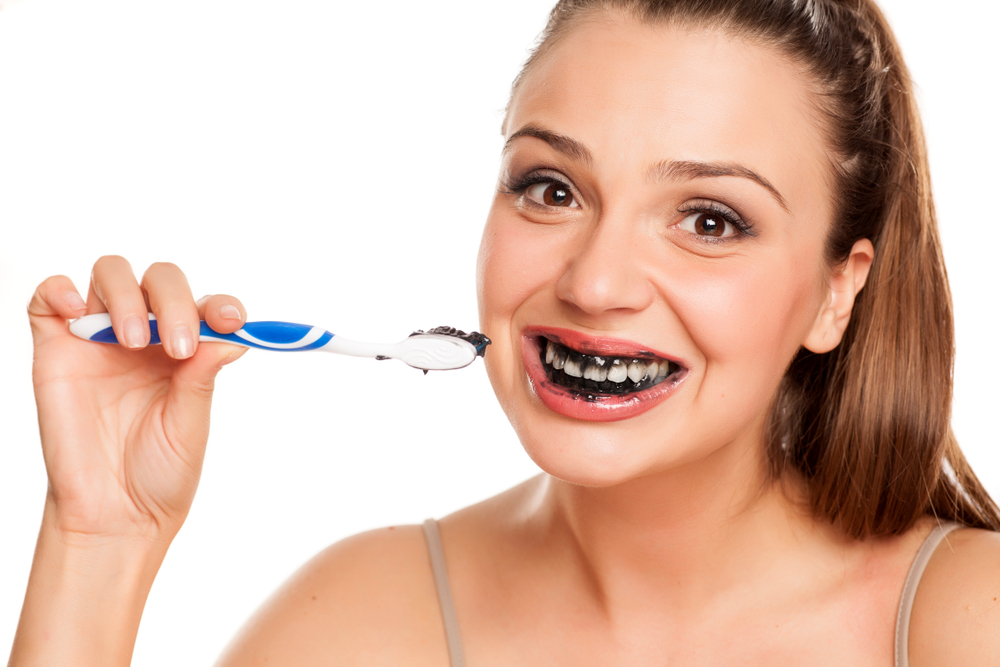
The use of activated charcoal as toothpaste is one of the hottest trends in the wellness industry today and you may have heard of it only recently but is it worth the hype? In this article you will find out how it works and the benefits of using charcoal toothpaste.
Why has charcoal toothpaste become popular?
If you have been keeping tabs on the wellness industry for some time, then you would know about the many applications for activated charcoal. We are not talking about the kind of charcoal that you use on a grill but rather a powdered grey matter produced from all natural sources like coconut shells and is widely known as a potent detoxifying substance.
You have probably seen photos of people using activated charcoal for all sorts of reasons on social media. Applications include face masks, body wash, facial scrubs and now dental care products in the form of teeth whitening toothpaste.
Ask holistic wellness experts who are up to date with the latest trends and they will likely tell you the same things. Activated charcoal is worth your time and money especially if you have been looking for a natural and practical means of whitening your teeth.
Beyond teeth whitening, activated charcoal offers a range of other benefits which include the following:
- help prevent cavities and bad breath
- mineralises teeth
- helps maintain a healthy microbiome in the oral cavity
To better understand what using activated charcoal toothpaste for teeth can do for you, it would be best to start with a little bit of history to give you an appreciation of activated charcoal, and whether it’s something that you would want to add to your dental care regimen.
Historical Perspective of Activated charcoal
People have been putting the adsorbent quality of activated charcoal to good use as early as the 1700s. Beck then, applications were limited to the clinical setting as doctors were only starting to discover the neutralising effect of activated charcoal when using it to treat accidental poisoning in people and animals.
Over the centuries, the wellness applications of activated charcoal were further improved in the light of its adsorbent quality. What we now know for sure is that activated charcoal is particularly effective for teeth whitening and oral hygiene.
Here is a quick snapshot about activated charcoal:
- Activated charcoal is derived from all natural sources such as coconut shells and bamboo. These materials are heated to extreme temperatures producing billions of microscopic pores that bind toxins and chemicals substance.
- Detoxification — activated charcoal binds to toxins and foreign substances and removes them through brushing. It also hinders the absorption of harmful chemicals in the body through the mouth
- Activated charcoal works through adsorption which is not to be confused with absorption. Chemicals do not seep into the material but instead bind to the surface and are eventually expelled from the mouth.
What to expect when brushing with activated charcoal?
Tooth stains become lighter
Activated charcoal can work wonders in reducing the appearance of stains on the surface of teeth due to the frequent consumption of wine, coffee and other substances that contribute to extrinsic tooth stains. Although the process is not “teeth whitening” per see as it only affects the surface of the tooth, it is still a significant contributor to improving the appearance of teeth through removal of toxins.
Activated charcoal keeps your breath fresh by regulating acidic plaque
If you suffer from halitosis (bad breath), then that is another reason to consider using activated charcoal toothpaste. The material binds to the acid secretions and expedites its removal from the body, thereby preventing accumulation of foul smelling acidic plaque.
Good dental health and overall wellness
What most people do not realise is that there is a natural microbiome balance that keeps the teeth healthy and immune to germs which cause oral diseases. According to “Michigan Medicine,” activated charcoal can also be used to treat high cholesterol by binding acids and cholesterol in the intestine to prevent absorption by the body.
Some forethought about using activated charcoal toothpaste
Of course, we cannot go over the benefits of using activated charcoal toothpaste without giving some thought to the downsides which can happen due to improper use. Here are some considerations before adding activated charcoal toothpaste to your dental care regimen:
Use of the wrong type of activated charcoal toothpaste can damage the tooth enamel
Keep in mind that not just any kind of activated charcoal toothpaste will do. Some of them can be too abrasive and erode the enamel which wears down your teeth over time causing long-term damage.
Check that the activated charcoal toothpaste that you are using is not too gritty. You can determine the abrasiveness of the toothpaste by looking up its’ RDA rating (Relative Dentin Abrasivity) which ought to be indicated on the packaging or through a quick search of the product online.
If you cannot find the RDA on a particular toothpaste, then it would is best to look for another brand that is more transparent about the abrasiveness of their product. Such information is critical because it impacts your long-term dental health.
Learn to use activated charcoal toothpaste the right way
Most people do not realise that there is a right and wrong way to use activated charcoal toothpaste. The key is to avoid being too forceful when using activated charcoal toothpaste for brushing teeth. Use gentle circular motions and rinse until you have got rid of all charcoal toothpaste on your mouth.
Another way of applying activated charcoal toothpaste is not to use a toothbrush at all and just spread it all over your teeth. This method is highly recommended especially if you have sensitive teeth or already have a problem with eroding tooth enamel.
Check the ingredients
Always check the label before buying the toothpaste. Avoid anything that has fluoride, sodium, and sweeteners as these may nullify any benefit that activated charcoal toothpaste has to offer.
Use activated charcoal toothpaste in moderation
The last and perhaps the most important thing that you need to remember about using activated charcoal toothpaste is that you should not be using it on a daily basis. Three times a week is the maximum or about once every 2 days to better manage the abrasiveness of activated charcoal and its adverse effect on the tooth enamel.
So there you have it — a good look at what activated charcoal toothpaste can do for you and whether brushing with activated charcoal toothpaste is something well worth adding to your oral care regimen.
Author Bio: Aiza Tordil is a beauty and health blogger from Love Thyself offering helpful advice on beauty tips and healthy living which she practices to keep looking healthy and attractive.
She is passionate about sustainable living and always up on the hottest natural and organic skincare trends. Ultimately, she hopes to tell stories that strike a chord with people and provide them the importance of using only natural and organic products.
Twitter: https://twitter.com/lovethyselfaus
Facebook: https://www.facebook.com/lovethyselfaustralia/

























